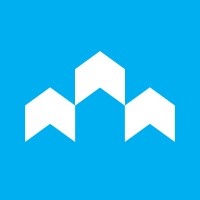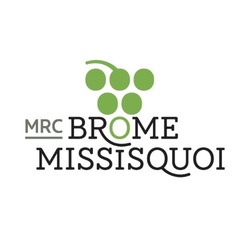The Société d'habitation du Québec (SHQ) is the government agency that plays a central role in social housing and affordable housing support in Quebec. It offers numerous SHQ subsidy programs and housing financing initiatives to facilitate the realization of socially or community-oriented real estate projects. These measures provide substantial housing financial assistance and can benefit housing cooperatives, non-profit housing organizations (NPOs), and private enterprises engaged in the housing sector.
This explanatory article is intended for companies—developers, builders, property owners, or other sector stakeholders—who want to better understand the subsidies and financing offered by the SHQ. We will review the main programs, such as AccèsLogis Québec, the Affordable Housing Program (PHAQ), the Rent Supplement Program (PSL), the Home Adaptation Program (PAD), the Low-Rent Housing Renovation Program (PRHLM), and the Support Program for Community Organizations (PAOC).
For each program, we will highlight real estate financing opportunities in Quebec, how to access them, and the potential for partnerships with housing cooperatives or NPOs. Finally, we will provide practical advice on how to obtain an SHQ subsidy and make the most of these programs.
AccèsLogis Québec: Supporting the Creation of Social and Community Housing
AccèsLogis Québec was long the flagship SHQ program for developing social and community housing. Its principle: pooling public, community, and private resources to finance housing intended for low- to moderate-income households.
Specifically, AccèsLogis offered a subsidy covering up to approximately 50% of eligible construction costs. A community contribution (often from the municipality or another local partner) of about 5% to 15% of the cost was added. The remaining funding usually came from a mortgage loan contracted by the project sponsor (the cooperative or NPO), guaranteed by the SHQ. This financial structure enabled rents to be set at affordable levels for residents.
As a company, it was possible to get involved in an AccèsLogis project as a builder, professional service provider (architect, general contractor, etc.), or partner of a cooperative/NPO leading the project. While the program is transitioning toward the new PHAQ for upcoming projects, the shared financing and partnership mechanisms it introduced remain a model for developing social housing today.
AccèsLogis fostered a cooperative ecosystem where community and private sectors joined forces with state support. For companies in the sector, it was an opportunity to participate in socially beneficial projects while enjoying the stability of public funding.
Affordable Housing Program (PHAQ): New Opportunities with the Private Sector
Launched in 2022 to succeed AccèsLogis, the Affordable Housing Program (PHAQ) financially supports affordable rental housing projects for low- to moderate-income households. This program introduces greater openness to the private sector in affordable housing development, marking a shift from its community-oriented predecessor.
The PHAQ operates through calls for projects launched by the SHQ. Developers—whether community organizations, cooperatives, municipalities, or private companies—can submit construction or conversion projects aimed at offering below-market rents. In exchange for SHQ financial support, developers commit to meeting affordability and quality standards for a set period. For instance, rents must remain below a regional maximum to stay accessible to target households.
Funding under the PHAQ comes in the form of a capital grant covering part of the project costs. Though the aid proportions may differ from AccèsLogis, the goal is similar: reducing the developer’s financial burden to allow lower rents. Being selected in a PHAQ call for projects can significantly improve the viability of an affordable housing project by lowering the need for upfront investment or bank financing.
Projects are assessed based on criteria such as energy efficiency, building durability, and inclusion of adapted units (e.g., for seniors or persons with disabilities). This encourages developers—including private ones—to propose high-quality outcomes while maintaining moderate costs.
Although PHAQ does not require a cooperative or NPO partner, such partnerships can be strategic—for instance, to benefit from social expertise or facilitate community acceptance. By welcoming private-sector involvement, the PHAQ creates new funding opportunities for real estate projects in Quebec while maintaining the goal of affordable rent housing.
Rent Supplement Program (PSL): Ensuring Rental Income While Helping Households
The Rent Supplement Program (PSL) is a key SHQ initiative involving collaboration between the public sector, tenant households, and private or community housing owners. Its goal is to make private market (or social stock) housing affordable for low-income households by subsidizing part of the rent.
Eligible tenants pay only about 25% of their income in rent, with the program covering the remainder (up to a maximum), paid to the landlord. For landlords, participating in the PSL offers several benefits: stable, predictable income since part of the rent is guaranteed by the government, and contribution to a social mission by housing low-income families without sacrificing returns—the total rent still aligns with market rates.
Since 2023, Quebec has modernized this program via the Quebec Rent Supplement Program (PSLQ). Landlords sign agreements with their regional housing office (or directly with SHQ) specifying the number of PSL units and the agreed rent ceiling. In return, they commit to renting these units to eligible households referred by the organization, typically for several years.
Participating in PSL means broadening access to your rental stock while enjoying guaranteed rent. For residential enterprises (property managers, real estate investors, etc.), it is a concrete way to contribute to the affordable housing crisis solution with state-backed financial support. However, PSL availability depends on public budgets and local priorities. Contacting your local housing office or the SHQ is the best way to learn how to include your units in the program.
Home Adaptation Program (PAD): Making Homes Accessible for All
The Home Adaptation Program (PAD) provides financial support to people with disabilities or reduced mobility to make modifications to their homes. The goal is to help them live safely and independently. For example, PAD may fund ramp installations or bathroom adaptations.
For landlords housing a tenant with a disability, PAD is a valuable resource: necessary (and often expensive) adaptation work can be largely covered by the grant. The result benefits both landlord and tenant—enhanced property value and tenant autonomy.
Collaboration with the tenant and program stakeholders (e.g., occupational therapists, inspectors) is needed, but the mutual benefit makes it worthwhile. If your business works in residential renovations or adaptive equipment installation, PAD also represents a business opportunity. Each grant means a new project (e.g., ramps, kitchens, bathrooms).
Due to its popularity, PAD sometimes runs out of funds before the end of the fiscal year, temporarily suspending new applications. In late 2024, the Quebec government responded by allocating an extra $38 million for 2025–2026 to address the backlog and reopen the program. Staying informed through SHQ or your municipality helps you access PAD as soon as it becomes available.
Renovation Programs (PRHLM and Rénovation Québec): Modernizing the Housing Stock
SHQ is also committed to preserving and modernizing existing housing through renovation programs targeting both public social housing and private residences in disadvantaged areas.
The PRHLM (Low-Rent Housing Renovation Program), launched in 2023, funds major repairs to aging HLMs (low-rent housing), including roofs, mechanical systems, insulation, etc., with substantial long-term investments planned.
For construction and renovation companies, this means many upcoming projects. Local housing offices managing HLMs issue calls for bids—qualified businesses can win stable, publicly funded contracts.
The Rénovation Québec Program (PRQ) supports private residential renovation in targeted distressed neighborhoods. SHQ provides funding to participating municipalities, which then offer financial aid for home renovation to owners of rundown or unsanitary buildings.
If your company operates in residential renovation, these local subsidies can help clients undertake work they couldn’t otherwise afford. Being aware of PRQ allows you to guide eligible clients toward these supports, securing project funding and growing your business.
In all cases, these Quebec renovation grants are powerful tools for revitalizing homes and supporting the construction industry. By informing clients and participating in related tenders, businesses help improve the housing stock while boosting the local economy.
Support Program for Community Organizations (PAOC) and Housing Sector Partners
The SHQ’s PAOC provides financial support to housing-sector organizations to help them fulfill their social mission. Rather than funding construction, it subsidizes operations and special projects—for example, technical resource groups assisting community housing development, tenant associations, or homelessness organizations.
This strengthens the community housing sector, which plays an essential support role. While private companies are not direct PAOC beneficiaries, partnering with funded organizations can be beneficial.
A well-funded community group becomes a valuable ally in launching or managing an affordable housing project. If planning a socially oriented project, consider collaborating with a local PAOC-supported organization to benefit from its expertise and community ties.
This community housing funding combined with private-sector know-how leads to stronger, more responsive projects. Companies can also choose to support organizations directly through sponsorship or partnerships.
Working with housing co-ops and NPOs—who indirectly benefit from SHQ support via PAOC—greatly facilitates community project execution. These alliances increase your initiatives’ success and impact while strengthening the local social fabric.
How to Get an SHQ Subsidy?
For companies and developers interested in these programs, a key question arises: how to get an SHQ subsidy for your project or operations?
Though each program has specific requirements, here are general steps and tips:
Identify the right program and check eligibility – Match your project with the appropriate SHQ program and ensure you meet the criteria (e.g., PHAQ for new affordable housing, PSL for subsidized existing units, PRHLM for HLM renovations). Review official guides carefully.
Build a strong application – Submit a comprehensive request: detailed project description, budget and financial plan, designs or plans, and supporting documents (market study, letters of support, etc.). The more aligned and thorough, the higher your chances.
Submit it properly and on time – File your application with the correct authority and respect deadlines. PHAQ and AccèsLogis usually go through SHQ (sometimes via municipalities), while PSL requires contact with your local housing office. Follow exact submission procedures for timely processing.
Expert assistance is recommended—technical resource groups often help co-ops and NPOs build projects and secure funding. Some consulting firms also specialize in SHQ calls for projects. Investing time in a solid application can unlock significant financial support and enhance your project’s profitability and social impact.
Partnership Opportunities for Businesses
Beyond technical aspects, public–private or community partnerships are key. Several SHQ programs encourage or involve them, benefiting companies.
Collaborate with housing co-ops or NPOs – Partnering with community organizations aligns social missions with business expertise. The community partner offers knowledge and access to subsidies; the business provides financing and development skills.
Partner with municipalities – Working with cities can ease SHQ program access. Municipalities may contribute land, tax breaks, or additional funding. Their backing also accelerates approvals (zoning, permits), securing your timeline.
When affordable housing is integrated into private projects, SHQ programs (PHAQ, PSL) help offset lower revenues from these units, preserving financial balance.
SHQ funding is more than one-time aid—it’s part of a collaborative ecosystem. Businesses, co-ops, NPOs, municipalities, and the provincial government all play a role in solving housing challenges. Companies leveraging these partnerships gain not only Quebec real estate financing but also stronger networks and a meaningful social contribution.
Conclusion
Through its many affordable housing financing programs and subsidies, the SHQ acts as a powerful lever to develop and improve housing in Quebec.
For businesses, understanding and tapping into these programs can make the difference in realizing a socially impactful project or adopting responsible business practices. These aids reduce project costs and risks while opening doors to fruitful partnerships with housing co-ops, NPOs, and public partners.
In short, SHQ grants and financing provide a financial lifeline for housing in Quebec. Businesses should take advantage—whether to fund an innovative real estate project, renovate aging rental stock, or connect with the community housing sector.
By combining private expertise with public support, sustainable projects can emerge, benefiting investors, partners, and most importantly, citizens seeking quality, affordable housing. This shared success shows that business profitability and social progress can go hand in hand—for the good of all.















